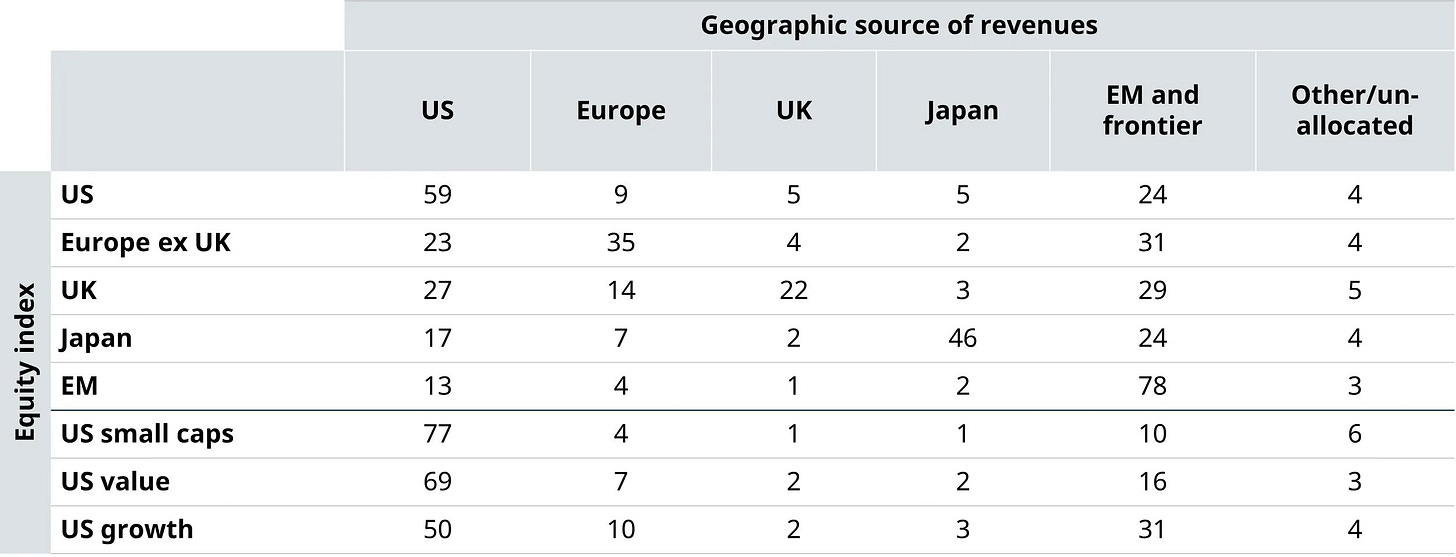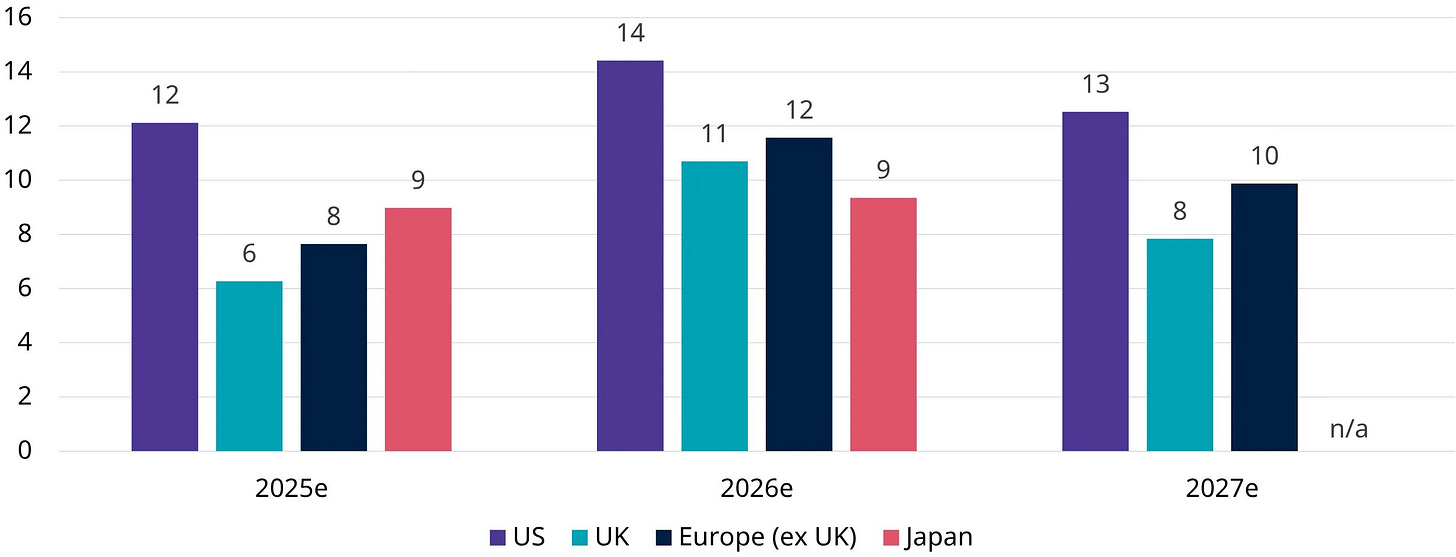World in trouble
This week's econ data from non-US countries appear to be slumping. Germany's ZEW economic survey (a sentiment-based view from analysts) took a huge unexpected drop after it's surge the previous month. Separately, in Canada, the latest inflation reading was only 2.3%, following a weak Business Outlook survey and weak jobs report. And in the UK, the payrolls report fell unexpectedly.
It wasn't long ago that optimism was bubbling in Europe on the back of new fiscal boosts. That optimism has completely faded as erratic trade policies weigh on expectations. We like the European fiscal story long-term, but we’ve been calling for a brief short-term pullback due to the overshoot in valuation.
Many countries in Europe are reliant on large trade surpluses with the US. Tariffs hurt the surplus country more than the deficit country. Consider a simplified example: A 10% tariff on a $50 import results in a roughly 10% decrease in demand for the foreign manufacturer. Say the American importer retails it at $100; their cost is now $55 ($50+10%) so they raise the price to $105 to retain their profit margin. That's only a 5% increase in the final price tag, which should result in only a 5% decrease in demand.
Our view is that the baseline tariff is likely to stay, as Trump is serious about reducing the trade deficit. This puts a permanent headwind on foreign exporters to the US. It is the simple fact that the US is the world's largest customer, and when your largest customer stops buying from you, you have a major problem. Hence why foreign business sentiment is collapsing despite incoming fiscal stimulus.
Chart below shows US corporate earnings are still growing faster than foreign company earnings. Analysts expect US economic growth to be 2.5% next year, compared to Europe and UK at 1%. The implication of all this? Expect US earnings to outperform the rest of the world, potentially leading to another era of exceptionalism.
Interestingly, there are talks of China forming new trade relations with Europe. This will fail because China itself is a major exporter. You can't replace your biggest source of income by partnering with your biggest competitor! In contrast, the US has the leverage to pressure other countries, which is reportedly what's been happening in negotiations.
US recession ahead
The rest of this article is paywalled. Inside, you can read about:
US recession is coming
Big swings in currencies
Flows and positioning
Volatility
Portfolio update
Keep reading with a 7-day free trial
Subscribe to MKTCONTEXT to keep reading this post and get 7 days of free access to the full post archives.







